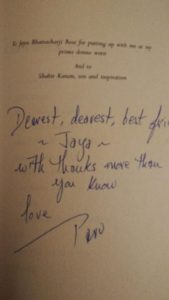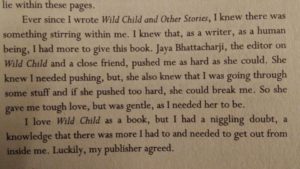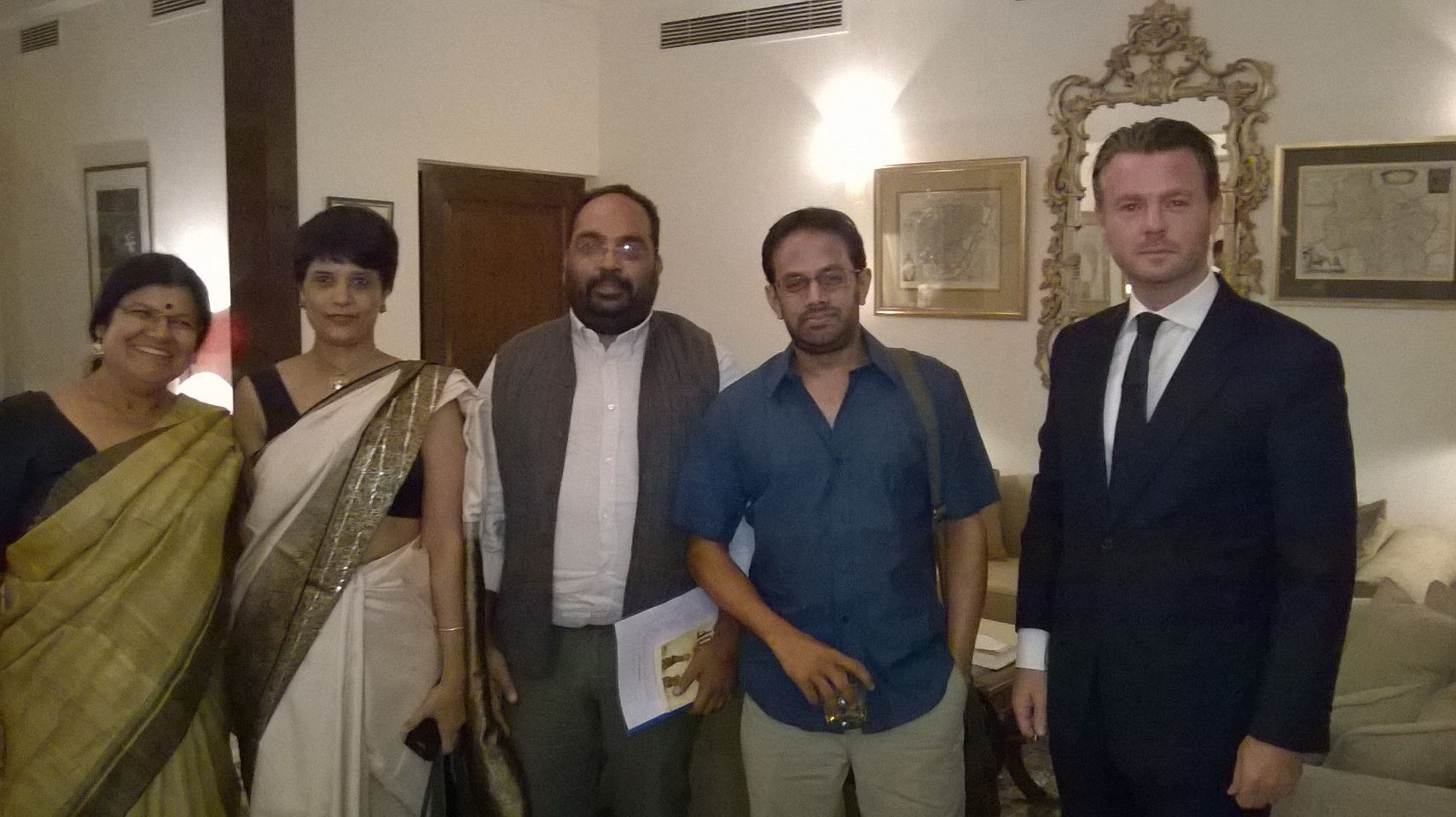Paro Anand wins the Sahitya Akademi Puraskar for “Wild Child”
In 2010 well-known children’s writer Paro Anand and I began working on a collection of stories. I had commissioned  the manuscript as a publishing consultant for Puffin India. It was a slow creative process which was hugely rewarding for the calibre of stories Paro Anand wrote. We worked at it patiently ignoring schedules focused on quality. Wild Child and Other Stories was published in December 2011. It sold in vast numbers. It was so popular that in 2015 Penguin India revised the edition. Paro Anand added a few more stories to the volume. It was rejacketed and relaunched with a new title — Like Smoke. The book in its various avatars has been in circulation for six years and continues to sell well.
the manuscript as a publishing consultant for Puffin India. It was a slow creative process which was hugely rewarding for the calibre of stories Paro Anand wrote. We worked at it patiently ignoring schedules focused on quality. Wild Child and Other Stories was published in December 2011. It sold in vast numbers. It was so popular that in 2015 Penguin India revised the edition. Paro Anand added a few more stories to the volume. It was rejacketed and relaunched with a new title — Like Smoke. The book in its various avatars has been in circulation for six years and continues to sell well.
Interestingly earlier this month Paro Anand wrote an article in The Indian Express ( 2 June 2017) on how at least two of her books, No Guns at My Son’s Funeral and Like Smoke , are being banned by schools in India.
She writes:
In recent months, these two books have been taken off reading lists. In one school, teachers decided that they were “inappropriate”; in another, parents apparently objected to their children being made to read such “improper” children’s books. The school authorities have withdrawn them.
This, after years of being taught to class nine and ten students. I am now being invited to talk in schools on the condition that I don’t bring up these titles under any circumstances. I am told that I should stick to some of my “safe” ones.
Is this happening out of fear? Is it the worry that, in these black and white times, a mob will find out about these books and come at the school, guns blazing? Is it a “better safe than sorry” thing? The “suppose something happens” factor? In a way, I can understand this — after all, young children are involved.
But, on the other hand, aren’t we robbing our young of open debate and critical thinking? Of late, we have been repeatedly giving in to a handful of people with easily hurt sentiments. But is our children’s curriculum to be decided by the mob? By khap panchayats? Are young people to stay forever within the safety of the lakshman rekha drawn by Cinderella? When the mob infantilises even adults with violent censorship — think Ramjas College — it’s no surprise that children’s literature is in the firing line, too. The only surprise is that it didn’t happen earlier.
Being awarded the prestigious Sahitya Akademi Puraskar 2017 for Wild Child and Other Stories and her contribution to children’s literature is a validation of Paro Anand’s decades of work in this field. Here is an example of the fan mail she receives for the book. This letter came in a couple of weeks ago.
Hi.I don’t know if you remember me. I wanted to thank you. I was in class 8th when I first met you and i still am in awe of you to this day. It was a beautiful memory that I long to revisit. You were in my school for an author meet. …It was you, who made me realise that life is worth when you live for others. It was you who inspired me to become who I am. It’s been nearly 5 years. You autographed on my copy of wild child that you’d hope to get my autograph one day and trust me that was day I aimed to be the best so as in to prove my mettle and I gave my best to be the school’s literary president. I owe that badge to you, mam. The day you signed that book was such a proud moment for me. I went to my class with a big grin and all my peers were jealous. My parents were very proud of me. Not that I’ve never won anything before, but that day I won respect. I was more than a role model to my sibling, more than just an achiever to my parents. Your words filled my heart with optimism and hope. I’ve had quite a few lows in my life. But somehow your words flashed back this one time and I’ve been strong ever since. I really want to thank you. It is these little things that actually affect a person’s life and I, from that very day tried to be a person like you. You’ve helped me in a way I never thought of. Your words have always been heart wrenching yet so inspiring. Thank you, I’ll never forget how you appreciated my innocence back then and answered all my questions tirelessly. Thank you for that beautiful afternoon. Wild child will forever be my book and you shall always be a tender, loving yet fearless inspiration to me. Thank you for being a part of my childhood. This isn’t Shabir Karam… Haha this is ….. I’ll have my kids(if I ever do that is), tell them about fats or bela’s troubles or about pepper. Thank you, I guess it is never too late.







